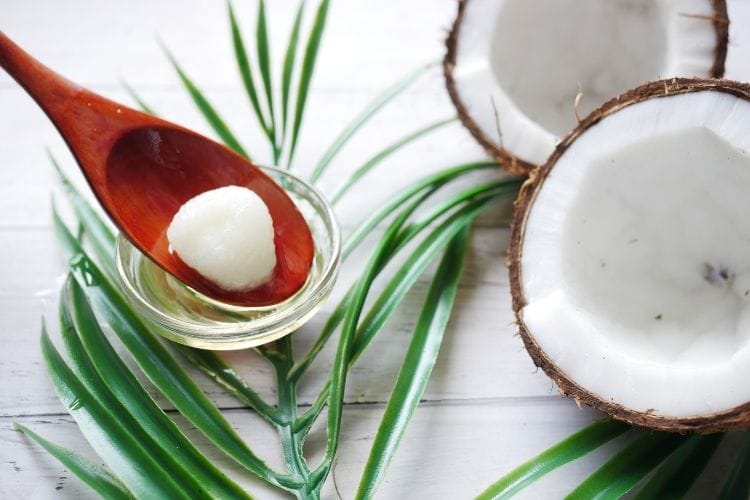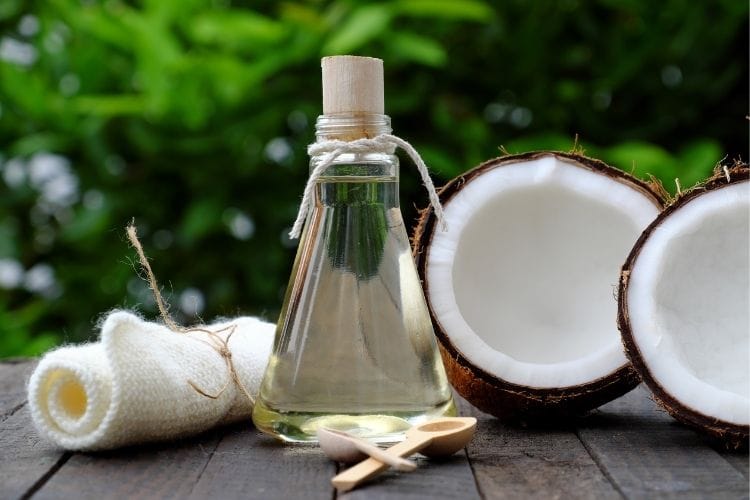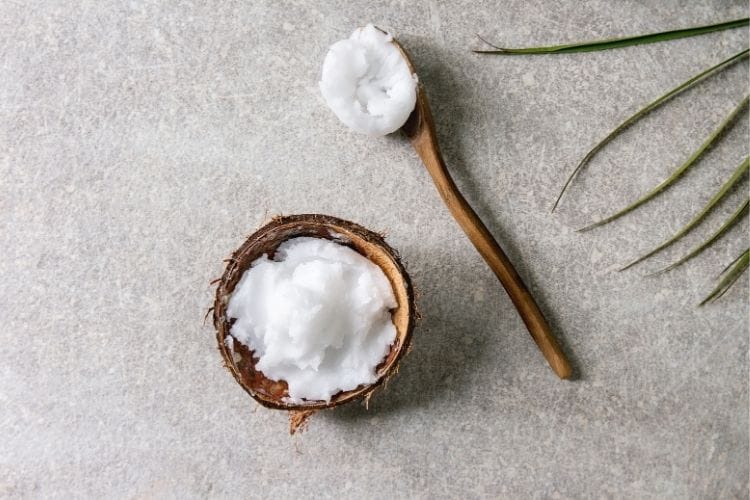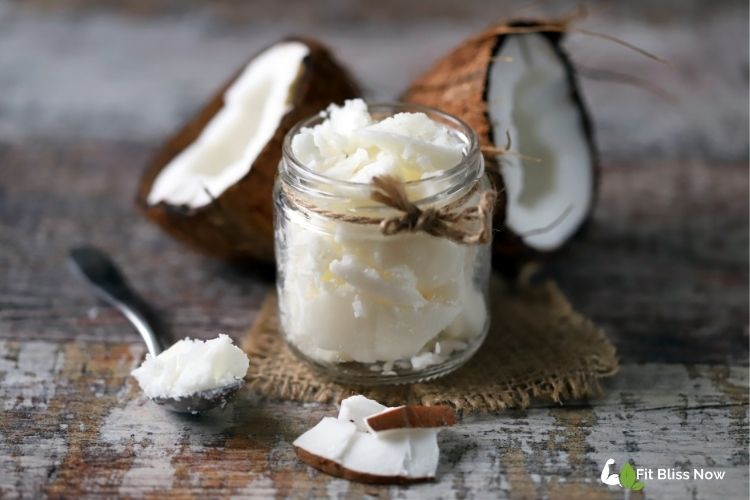In recent years, it’s safe to say that almost everyone has heard of coconut oil due to its rising popularity. But is this oil, which is always highlighted for its superior benefits, really as powerful as claimed?
People are gradually distancing themselves from nature and natural products, even if unintentionally. Aware of this growing gap, many are clinging more to the foods nature offers to maintain their connection with the “natural.” With the expanding scope of scientific studies and their certified praise for natural products, some previously overlooked foods are becoming much more popular. One of the most prominent among these is coconut oil!
When most people think of fats, high calories and various health issues often come to mind first. However, these foods play a crucial role in supporting the body’s energy production metabolism. Therefore, instead of completely eliminating fats from the diet, it’s essential to ensure they are consumed in the right amounts. And, of course, choosing the right fats is also of great importance for effective nutrition! So, is coconut oil the right choice for you?
Coconut oil, despite its pleasant aroma making it widely accepted, still has ongoing research with no definitive conclusions. Experts particularly emphasize that while this oil has benefits, excessive consumption can lead to undesirable effects. To better evaluate these positive and negative outcomes, it’s essential to understand coconut oil from all angles!
1. What is Coconut Oil?

What is Coconut Oil and How is it Used?
Coconut oil is a type of vegetable oil classified under “carrier oils” and is approved by relevant authorities for oral consumption. Produced from the fleshy kernels of the coconut tree, whose exact origin is still undetermined, this oil is typically produced in tropical regions. Additionally, coconut oil is divided into four categories based on its production method:
- Refined-fragrant (Edible)
- Refined-odorless (Edible)
- White oil (Edible)
- Industrial oil (Inedible)
Experts recommend pure coconut oil, which undergoes only mechanical processes during production, thus preserving its content, for both cosmetic applications and oral consumption. Pure coconut oil can be distinctly identified by its naturally sweet aroma and unique scent. It appears white in its solid state and transparent when liquefied.
2. How to Use Coconut Oil?

What is Coconut Oil and How is it Used?
Coconut oil has a wide range of uses across many industries, from cosmetics to food, and its application method varies according to need. Being classified under carrier oils, this oil can be comfortably used on its own, both for oral consumption and external application. Additionally, due to its status as a carrier oil, coconut oil can also be utilized to make essential oils suitable for external use.
What are the Benefits of Coconut Oil?

What is Coconut Oil and How is it Used?
The distinguishing feature that makes coconut oil special is its medium-chain triglycerides (MCT) content. These fatty acids positively impact the food’s journey through the digestive system and the effects it creates within this system. Additionally, one of these fatty acids, lauric acid, is known for its significant effects on oral, hair, and skin care. However, there is one more important thing you need to know!
The benefits of coconut oil, both for internal and external use, remain a hotly debated topic in scientific circles. While there are widely believed benefits among the public, some scientific studies argue that coconut oil may not be as powerful as commonly perceived. However, like all other herbal foods, it is continually emphasized that coconut oil is not completely ineffective due to its beneficial components.
What Ingredients Does Coconut Oil Contain?

What is Coconut Oil and How is it Used?
Coconut oil is composed of 92% saturated fatty acids in the form of triglycerides, including lauric acid (49%), myristic acid (20%), palmitic acid (8%), caprylic acid (7%), capric acid (5%), and stearic acid (3%). Approximately 70% of these are medium-chain fatty acids.
The concerns about coconut oil mainly stem from its high saturated fat content outside of the medium-chain fatty acids. Experts suggest that saturated fat intake should be limited to no more than 6% of total daily calories, as excessive consumption can lead to various health issues.
What Are the Uses of Coconut Oil?

What is Coconut Oil and How is it Used?
Coconut oil is a versatile and popular product with a wide range of applications, particularly in the cosmetic and food industries. Known for its high content of lauric acid and other beneficial compounds, coconut oil has earned its place as a staple in many households. From enhancing beauty routines to adding flavor and texture to culinary creations, its uses are diverse and impactful.
Uses in the Cosmetic Industry
One of the primary areas where coconut oil shines is in the cosmetic industry. Its natural properties make it an effective ingredient in numerous beauty products. Here are some common applications:
- Moisturizer: Coconut oil is highly effective at hydrating the skin, thanks to its ability to lock in moisture. It is often used as a standalone moisturizer or included in lotions and creams.
- Hair Care: Coconut oil penetrates the hair shaft deeply, nourishing it from within. It is frequently used in shampoos, conditioners, and hair masks to repair damage, reduce frizz, and add shine.
- Skin Care: Beyond moisturizing, coconut oil has antimicrobial and anti-inflammatory properties, making it suitable for treating minor skin conditions like eczema or acne. It is also a popular ingredient in lip balms and scrubs.
- Nail and Cuticle Care: Massaging a small amount of coconut oil into cuticles can strengthen nails and prevent dryness, promoting healthier hands overall.
- Cleansing Products: Coconut oil is a common component in soaps, shower gels, and body washes. Its natural fragrance and creamy texture provide a luxurious experience while cleansing the skin.
Uses in the Food Industry

What is Coconut Oil and How is it Used?
Coconut oil’s unique characteristics also make it highly valuable in the culinary world. Its high saturated fat content and solid state at room temperature make it a versatile ingredient in various recipes. Here are some ways it is used:
- Butter and Margarine Substitute: Coconut oil is a great alternative to traditional fats like butter and margarine, particularly in vegan and dairy-free recipes. Its solid form mimics butter’s texture, making it ideal for baking cookies, cakes, and pastries.
- Cooking and Frying: Thanks to its high smoke point, coconut oil is perfect for frying and sautéing. It imparts a subtle coconut flavor that complements many dishes, from stir-fries to roasted vegetables.
- Flavor Enhancer: Coconut oil adds a unique richness and aroma to recipes, making it a favorite in tropical and Asian cuisines. It’s commonly used in curries, soups, and stews for an extra depth of flavor.
- Oatmeal and Bowls: Adding a teaspoon of coconut oil to oatmeal or smoothie bowls enhances their texture and flavor, offering a creamy and indulgent experience.
- Homemade Snacks: Coconut oil is a key ingredient in making granola bars, energy bites, and popcorn, providing a healthy and tasty alternative to traditional oils.
Health Benefits of Coconut Oil
Beyond its practical uses, coconut oil offers several health benefits that contribute to its popularity:
- Rich in Medium-Chain Triglycerides (MCTs): Coconut oil contains MCTs, which are easily digestible fats that provide quick energy. They may also help boost metabolism and support weight management.
- Antimicrobial Properties: The lauric acid in coconut oil has antimicrobial effects, which can help fight harmful bacteria and viruses when consumed or applied topically.
- Improved Oral Health: Coconut oil is used in a practice called oil pulling, where it is swished around the mouth to reduce plaque, prevent cavities, and promote gum health.
- Skin Protection and Healing: Coconut oil can help protect the skin from environmental damage, promote wound healing, and reduce inflammation.
DIY Uses for Coconut Oil
Coconut oil is not just for store-bought products; it is also a favorite for DIY enthusiasts. Here are some creative ways to use it at home:
- Homemade Lip Balm: Mix coconut oil with beeswax and a few drops of essential oil for a nourishing lip balm.
- Body Scrub: Combine coconut oil with sugar or salt to create an exfoliating scrub that leaves the skin soft and smooth.
- Hair Mask: Apply warm coconut oil to your hair, leave it on for 30 minutes, and wash it out for deep conditioning.
- Makeup Remover: Coconut oil effectively removes even waterproof makeup without drying out the skin.
- Natural Deodorant: Blend coconut oil with baking soda and cornstarch for a chemical-free deodorant.
Environmental and Sustainable Aspects
Coconut oil is often considered a sustainable alternative to other oils, as coconuts are a renewable resource that grows in abundance in tropical regions. However, it’s essential to choose products from ethical and sustainable sources to minimize environmental impact and support fair trade practices.
Conclusion
Coconut oil’s versatility makes it a valuable addition to both beauty routines and culinary adventures. Whether you’re moisturizing your skin, enhancing your recipes, or exploring creative DIY projects, coconut oil offers countless benefits. Its natural properties, combined with its wide range of applications, ensure that it remains a popular and trusted choice for consumers worldwide. Embrace the potential of coconut oil and enjoy its many uses in your daily life.
When using coconut oil in recipes, it’s important to remember that it has a strong flavor and aroma. When paired with foods that complement this aroma, you’ll enjoy mouthwatering flavors. However, as with all foods, be sure to consume coconut oil in ideal amounts to maintain a balanced diet!


